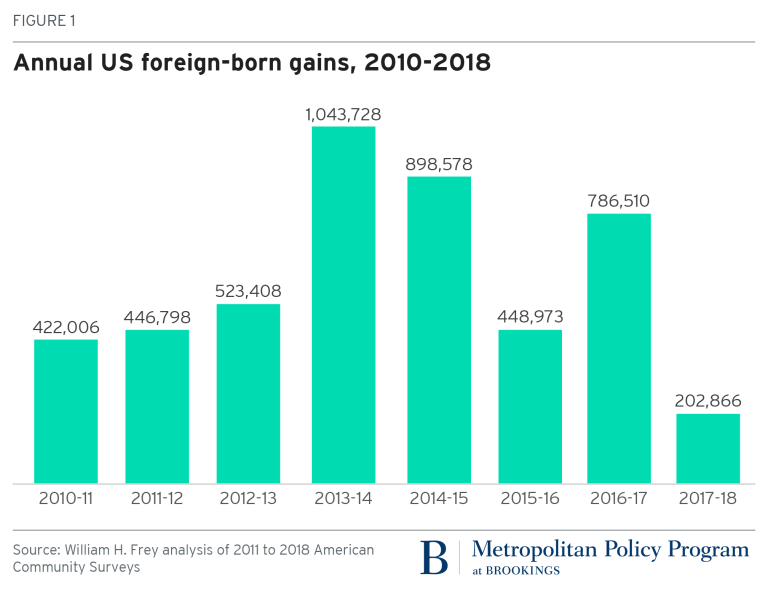What City Observatory did this week
1. Transportation for America won’t be fooled again.. After years of getting rolled by the freeway lobby, it appears that T4America has finally said “Enough.” Transit and active transportation activists have been roped into an unholy alliance with highway advocates, pressing the federal government for more money for “multi-modal” transportation, with the vain hope that if more money goes to transportation, some additional crumbs will come their way. In practice that’s meant tons of money for new freeways, and mostly token amounts for “alternative” modes of transportation. Last week, Transportation for America finally pulled the plug on this strategy, they write:
We’ve been going down the wrong road on transportation long enough: Transportation needs a change in priorities and policies, not just more funding for the same failed approaches of the past.
To its credit, T4America has laid out three guiding principles that can set us on the right course: Fix it first, Safety before speed, and Accessibility not mobility. These are a solid foundation, to which we might append: No free ride–getting serious about pricing road transportation is the key to getting value for our expensive investments in infrastructure.
2. Trouble in Ecotopia. The upper left hand corner of North America has long regarded itself as the bastion of ecological passion; Ernest Callenbach coined the moniker “Ecotopia” to describe the region in the 1970s. And to be sure, the region, stretching from San Francisco north to British Columbia is the home of many innovative pro-environmental policies. And the region’s leader uniformly talk a good game about their concern for global warming and their fealty to the Paris Climate Accords.
 But as we take a close look at their greenhouse gas inventories, every part of Ecotopia is chalking up big increases in carbon emissions, in spite of adopted commitments to bring them down. The main reason: people are driving more in the region, not because of a growing economy but because of cheap gas. And here’s where action falls short of rhetoric: Ecotopian political leaders, including for example, Governor Jay Inslee, are supporting major freeway construction projects and other efforts that subsidize more driving, and more greenhouse gas emissions. If Ecotopia is ever going to live up to its stated values, its got a lot of work to do.
But as we take a close look at their greenhouse gas inventories, every part of Ecotopia is chalking up big increases in carbon emissions, in spite of adopted commitments to bring them down. The main reason: people are driving more in the region, not because of a growing economy but because of cheap gas. And here’s where action falls short of rhetoric: Ecotopian political leaders, including for example, Governor Jay Inslee, are supporting major freeway construction projects and other efforts that subsidize more driving, and more greenhouse gas emissions. If Ecotopia is ever going to live up to its stated values, its got a lot of work to do.
Must read
1. Cars are death machines, whether automated or not. Alison Arieff challenges the idea that autonomous vehicles will do anything to address the inherent dangers of cities full of cars. Autonomous vehicles seem to have a blind spot when it comes to, some things, specifically cyclists and pedestrians. That’s led the industry, unsurprisingly to propose to equip people with technology so that they can be “seen” by machines. As Arieff argues, this is perverse:
Among the safety measures proposed by car companies are encouraging pedestrians and bicyclists to use R.F.I.D. tags, which emit signals that cars can detect. This means it’s becoming the pedestrian’s responsibility to avoid getting hit. But if keeping people safe means putting the responsibility on them (or worse, criminalizing walking and biking), we need to think twice about the technology we’re developing. This may be the worst outcome of the automobile-centered 20th century: the assumption that it’s people who need to get out of the way of these lethal machines, instead of the other way around.
If we want to reduce the growing number of road deaths, the best solution is to encourage fewer people to drive. Traffic deaths are directly related to the number of cars on the road and the number of miles they are driven. Reducing car travel is a key to achieving many important objectives, with pedestrian safety, promoting livable urban spaces and reducing greenhouse gas emissions.
2. Want affordable housing? End parking requirements. Sightline Institute’s Michael Andersen has an insightful look at the economic implications of Portland’s Residential Infill Policy, which is part of city’s implementation of Oregon’s new “missing middle” legalization of duplex, triplex and four-plex housing in single family zones. A critical feature, as Andersen points out, is whether the city code requires the provision of off-street parking. If parking is required, the economics of development suggest that the city will see fewer and more expensive housing built; with parking requirements relaxed, a similar site is more likely to be developed with more housing units at lower price points. As Andersen says:
More broadly, there’s an issue of principle here that could apply in any city: Mandating off-street parking, even when we’re fully aware that it makes more and cheaper homes impossible, requires a judgment that housing cars is more important than housing people.
Nowhere in Portland—nowhere on the planet—is that true.
3. The racial divide between baseball and soccer in Atlanta. Comedian George Carlin has a classic monologue contrasting the pastoral character of baseball with the militaristic vibe of football–in baseball, the object is to get home; in football, its to reach the “end zone.” Sports Illustrated has a fascinating essay exploring a somewhat different schism in Atlanta. The baseball Braves have moved out of their central city location into taxpayer subsidized stadium in suburban (and still, relative to Atlanta, disproportionately white) Cobb County. Meanwhile the city’s new Major League Soccer franchise, Atlanta United, has set up shop in the downtown Mercedes Benz stadium. As Sports Illustrated points out, the differences between the locations and the teams respective fan bases is striking. With baseball in the suburbs and soccer in the city, there’s a huge missed opportunity for these different groups to interact:
Had the Braves not left downtown, supporters in red-and-black United jerseys might have been packed in tight on nights like this with baseball fans in navy Braves T-shirts, at bustling bars and on sweaty train rides home. They might have traded smiles and congratulations. Maybe raised glasses. Maybe shared a fleeting moment of commonality with someone who looked different or believed in something else.
While Atlanta United’s location is more urban and its supporters more diverse, the franchise is still not fully a model of inclusion. As we’ve reported at City Observatory, the teams practice field was built on a site where the suburban city of Marietta used tens of millions of taxpayer dollars to acquire and demolish low income housing, mostly occupied by people of color.
New Knowledge
A decline in international immigration. The Trump Administration has vilified immigrants and erected barriers to people moving to the US, and now immigration to the US has fallen to its lowest level in a decade, according to Census data compiled by the Brookings Institution’s Bill Frey. In just the past year, data from the latest American Community Survey suggest that the number of foreign born residents of the US increased by just over 200,000, down almost 75 percent from the level of the previous year.
The irony is that the biggest declines in immigration have been in blue states, while the number of foreign-born persons living in red states continues to increase. As Frey observes:
. . . over the last year, Clinton states, as a group, registered declines in their foreign-born populations—including substantial declines in New York and Illinois—and more modest declines in California, New Jersey, and Maryland, among other states. Meanwhile, Florida and Texas exhibited significant gains, as did other Trump states including Arizona, Pennsylvania, and Ohio.
Foreign immigration has been an important driver of the US economy; many of those who work for, and who start the nation’s most innovative companies have chosen to move to the US; a decline in immigration is a potential threat to future economic prosperity.
In the news
An editorial–“Back to basics: Walkability in Chapel Hill”–in the the Daily Tar Heel quoted our research on the value premium commanded walkable homes.


